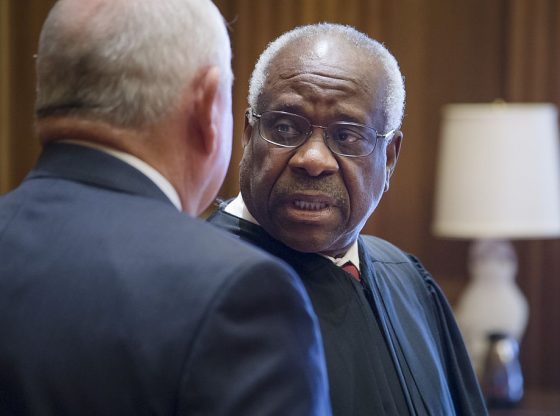In Justice Clarence Thomas’s concurring opinion the conservatively leaning Supreme Court member said that soon they will be forced to rule on the role big tech platforms play with regard to the First Amendment. On Monday, the Supreme Court voted to dismiss a case against Trump which argued he violated the First Amendment by blocking some of his critics on Twitter.
Fox News reports:
Thomas noted that while Trump had the power to block other users, Twitter was then able to block “all Twitter users from interacting with his messages” by banning his account altogether.
“Because unbridled control of the account resided in the hands of a private party, First Amendment doctrine may not have applied to respondents’ complaint of stifled speech,” Thomas pointed out, stating that “[w]hether governmental use of private space implicates the First Amendment often depends on the government’s control over that space.”
Thomas acknowledged how modern technology is not always easily addressed by existing legal doctires, and warned that the Supreme Court “will soon have no choice but to address how our legal doctrines apply to highly concentrated, privately owned information infrastructure such as digital platforms.”
…
“The Second Circuit feared that then-President Trump cut off speech by using the features that Twitter made available to him,” Thomas said. “But if the aim is to ensure that speech is not smothered, then the more glaring concern must perforce be the dominant digital platforms themselves. As Twitter made clear, the right to cut off speech lies most powerfully in the hands of private digital platforms. The extent to which that power matters for purposes of the First Amendment and the extent to which that power could lawfully be modified raise interesting and important questions.”
Republican lawmakers have been fierce critics of Big Tech even before Trump was banned from multiple platforms in January and have called for sweeping legislative changes to protect users.











